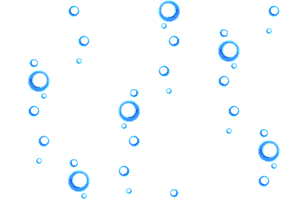
Academy of Underwater Arts & Sciences Presenter of the NOGI Award


David K. Weinstein, Ph.D.
Marine Geology & Geophysics – 2010
An innate curiosity and an appreciation for natural processes have led David Weinstein to study a broad spectrum of scientific subjects and have ultimately led him to pursue a doctorate degree in marine geology at the University of Miami (UM). Innovative field and laboratory research with leading experts complimented David’s education, teaching him critical problem solving skills and giving him a deep understanding of the scientific process. Blending these diverse academic and research pursuits has prepared David to confront fundamental scientific questions from varying perspectives.
The first time David went SCUBA diving four years ago exposed him to a mysterious world critical to environmental sustainability. Diving ignited in him a deep interest in addressing major environmental threats to Earth’s fragile oceans. That first experience in combination with David’s love of nature and his academic background, have helped him to identify his long-range career goal: to fuse inquisitive environmental research with practical solutions to prominent marine hazards (such as global warming) while encouraging public participation and education. To achieve this long-range goal, David plans to pursue a sequential four-step career plan consisting of the following: (1) graduate research of coral reef bioerosion; (2) field-based environmental marine preservation and conservation work; (3) policy and environmental resource development; and (4) teaching environmental management to future scientists and policy makers.
For the first step of his plan, David is examining the impact of bioerosion on the sustainability of coral reef framework and the variability of bioerosion in different reef habitats. With reefs threatened by numerous hazards, it is essential to understand the different biological and physical forces controlling reef development. Bioerosion is a fundamental process assisting in the regulation of the overall functionality of coral reefs. The significant role bioeroding organisms play in creating and modifying the carbonate budget of a reef implicates the bioerosional process as a primary control on reef accretion, destruction, and preservation. Given the importance of bioeroders in reworking reef material, it is vital to study how bioerosion affects the overall structure of an autonomous reef ecosystem and the amount of reef material that can potentially preserve as structure-forming framework.
David’s research focuses on mesophotic reef bioerosion in the U. S. Virgin Islands. Mesophotic coral ecosystems (MCEs) are deep reef communities (30-150 m) found in low light, low energy environments. These deep reefs are thought to serve as potential refugia for shallower coral and fish species threatened by local and global stressors. MCEs are also valued as: (1) renewable sources of larvae that may contribute to shallow water reef resiliency; (2) critical habitats for commercially important fish; and (3) promising locations for increased identification of new biodiversity. Recent advances in SCUBA diving technology have increased the safety and the ability of scientists to conduct research in deeper water. While some studies have begun documenting important mesophotic reef characteristics, there is a critical gap in knowledge regarding the variability of deep reef bioerosion and its impact on the sustainability of mesophotic reef framework. Combining his experience and education with the tri-mix and decompression diving training David received at UM should make it possible for him to successfully fill this gap. Ultimately, both the efficient management of MCEs and a greater understanding of the vital environmental services mesophotic reefs provide rely on a fundamental understanding of all primary reef processes, such as bioerosion.
